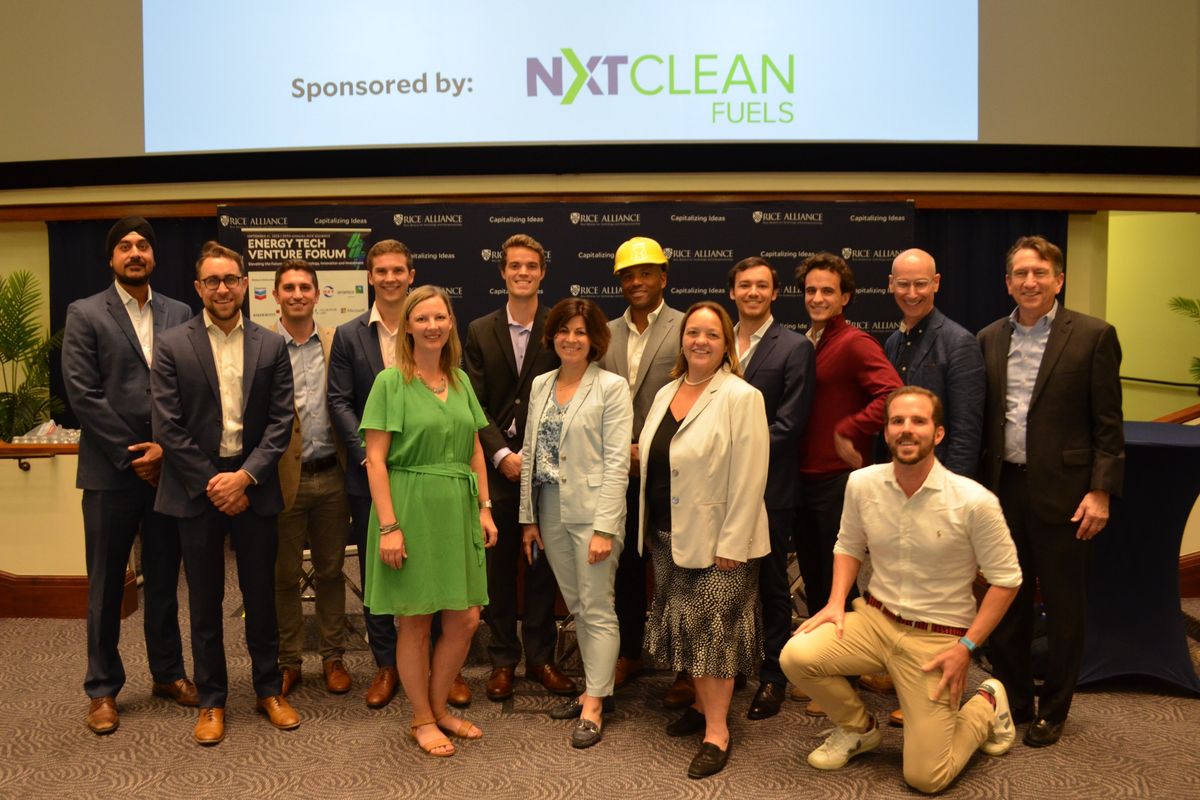Seven companies from around the world have been invited to join Halliburton Labs, the company announced today.
Halliburton Labs is an incubator program that helps early-stage energy tech companies through connections, access to facilities, and more.
"We are pleased to welcome these promising energy startups and provide customized support to help them achieve their specific priorities, accelerate commercialization, and increase valuation," says Dale Winger, managing director of the program, in a news release. "Our experienced practitioners and network will help these companies use their time and capital efficiently."
The next Halliburton Labs Finalists Pitch Day, which will feature the ongoing cohort, is planned for Thursday, March 14, in New Orleans in coordination with New Orleans Entrepreneur Week and 3rd Coast Venture Summit. Applications for the program are open until Friday, February 9.
The newest additions to Halliburton Labs are as follows.
One of three Israel-based companies in the cohort, Airovation Technologies is advancing carbon capture and utilization solutions through helping hard-to-abate industries that achieve emissions reduction targets through its proprietary carbon mineralization technology. Through transforming point-source CO2 emissions into circular chemicals and building materials, Airovation is developing a scalable pathway for industrial emitters to decarbonize with multiple revenue streams.
“Industrial emitters are seeking economic ways to decarbonize,” Marat Maayan, founder and CEO at Airovation Technologies, says. “We are excited to accelerate our commercialization in the United States with Halliburton Labs, leveraging their expertise, capabilities and network."
Ayrton Energy, based in Calgary, is developing liquid organic hydrogen carrier storage technology to enable the large-scale, efficient transportation of hydrogen over extended distances without hydrogen loss and pipeline corrosion. This storage technology provides a high-density hydrogen storage medium without the need for cryogenics or high-pressure systems, which differs from the existing technology out there. This improves the safety and efficiency of hydrogen storage while enabling the use of existing fuel infrastructure for transportation, including tanks, transport trucks, and pipelines.
“Our mission is to enable hydrogen adoption by solving the key challenges in hydrogen storage and transportation,” Ayrton CEO Natasha Kostenuk says.
Cache Energy, based out of the University of Illinois Research Park, is developing a new long duration energy storage solution, which scales to interseasonal durations, through a low-cost solid fuel. Once charged, the storage material stores energy at room temperature, with near zero loss in time and can be safely stored and transported anywhere energy is needed.
“We are strong believers of leveraging existing infrastructure and expertise to fast track decarbonization goals,” Arpit Dwivedi, founder and, says CEO of Cache Energy. “We look forward to this collaboration and learning from Halliburton's manufacturing and operational expertise, as we scale our technology.”
From Be'er Sheva City in Israel, CENS develops enhanced dry dispersion technology based on dry-treated carbon nanotubes that enable high energy density, high power, and outstanding cycle performance in Li-ion batteries. The technology is differentiated because it can be applied to any type of lithim-ion battery and its implementation can be seamlessly integrated into the production line.
“Our goal is to develop ground-breaking technologies that will become disruptive technologies to market at a massive scale,” says CEO Moshe Johary. “With the help and vast experience of Halliburton Labs' team, we could achieve advancements in production capabilities while extending our footprint in the market.”
Casper, Wyoming-based Disa Technologies provides solutions to the mining and remediation industries. Disa utilizes patented minerals liberation technology to more efficiently isolate target minerals and mitigate environmental impacts to its users. Disa platforms treat a wide array of critical minerals that are essential to the economy and our way of life.
“We are excited to have Halliburton's support as we scale-up our technology and deliver innovative minerals processing solutions that disrupt industry best practices, enhance global resource utilization, and benefit the environment and the communities we serve," Greyson Buckingham, Disa's CEO and president, says.
Marel Power Solutions, headquartered from Michigan, is innovating electrification through its novel powerstack technology. These materials-efficient, quickly deployable, and scalable power-stacks, encapsulating advanced cooling technology, redefine power conversion in mobility, industrial, and renewables spaces.
“We're thrilled to contribute to global climate sustainability. Our collaboration with Halliburton will accelerate the electrification transition across industries. Marel's technology not only maximizes heat evacuation from densely packed power semiconductors but, more importantly, offers substantial savings in cost, weight, size, and time, making it transformative in the evolving landscape of electrification,” Marel CEO Amrit Vivekanand says.
And lastly, XtraLit is an Israeli company that develops a technology for direct lithium extraction from brines. The technology enables efficient and economically justified processing of brines even with relatively low lithium concentrations. Application of the extraction technology will allow mineral providers to unlock new significant sources of lithium that are critical to meet growing demand.
“Oil and gas industry produced waters might become a substantial resource for lithium production,” says XtraLit CEO, Simon Litsyn. “XtraLit will cooperate with Halliburton on optimization of produced water treatment for further increasing the efficiency of the lithium extraction process.”






 Ten companies from around the world were named as most promising. Photo courtesy of Rice
Ten companies from around the world were named as most promising. Photo courtesy of Rice Acquisitions and agreements fuel the top Houston energy news to knowCatch up on our top news for the first half of February. Courtesy photo
Acquisitions and agreements fuel the top Houston energy news to knowCatch up on our top news for the first half of February. Courtesy photo


